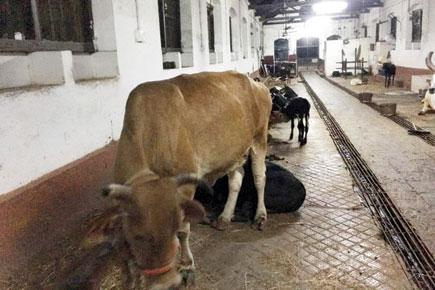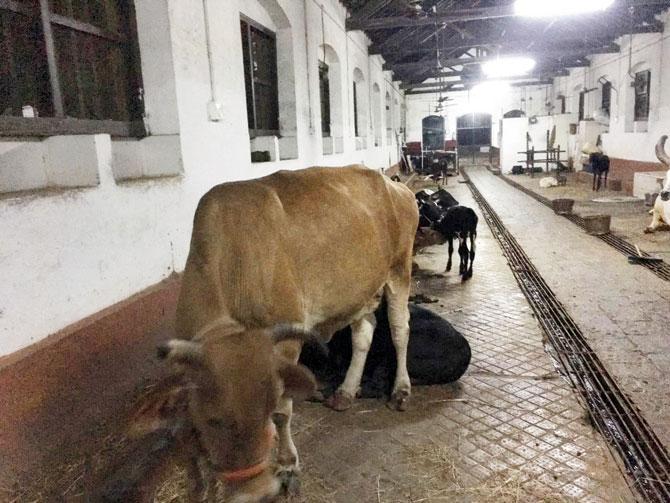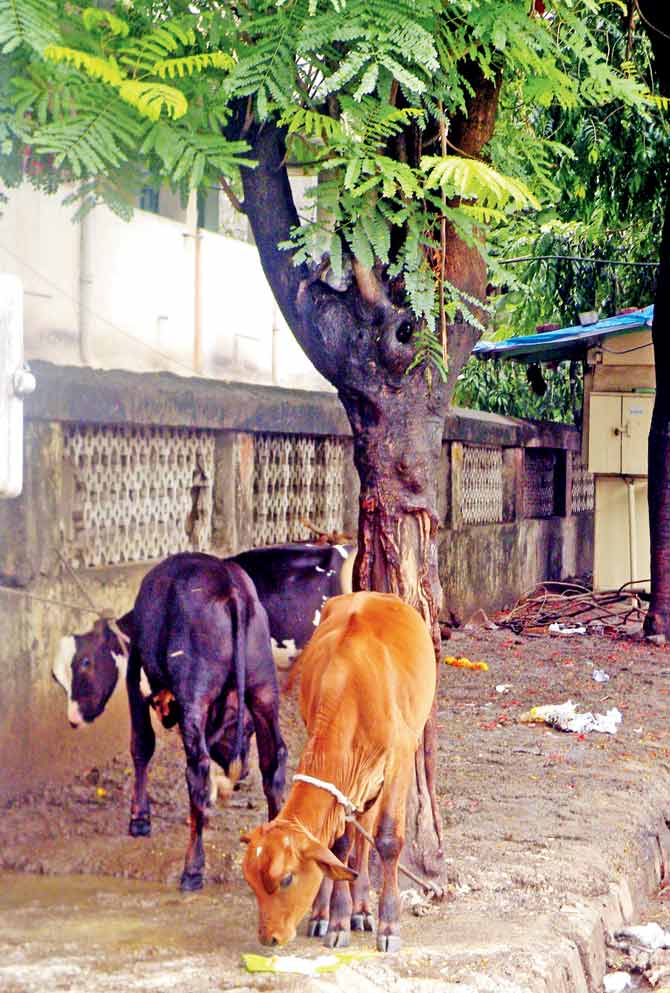Data from Mumbai's largest animal hospital shows that cows are underfed, overcrowded, treated cruelly and denied proper medical treatment


The cattle are milked twice a day and are left to forage for food on the streets. The hungry animals often end up eating garbage. file pics for representation
ADVERTISEMENT
We may profess to worship cows, but in reality, they are among the worst treated animals in this city. Data from the Bai Sakarbai Dinshaw Petit Hospital for Animals in Parel shows that in more than 60% of animal cruelty cases, the victims were cattle (between 2011-15).

Calves remain tied up at the cowshed so the cows are forced to return at night
In this five-year period, the city's largest animal hospital recorded 15,671 cases of animal cruelty, out of which, 9,553 were cases of cattle cruelty. "Mumbai has many cow sheds where the owners don't take proper care of the cattle. They often keep them tied up and don't give proper food in a violation of animal safety rules. Also, many sick cattle aren't given proper treatment and are given antibiotics without consulting veterinarians, which impacts their health adversely. We get many as many as 25 cows suffering from mastitis every month. These cows develop antibiotic resistance and when they are milked, this is passed to human beings," said Dr JC Khanna, hospital dean.
Underfed, overcrowded
"We pray to cows like god, but when it comes to taking care of them, no one cares, their slaughter and torture continues. These cowshed owners milk the cows in the morning then leave them to forage for food. The hungry cows often have no choice but to eat garbage. The dairy owners tie up the calves so the cows are forced to return at night. Then they are milked again. In rural areas, at least they are more caring towards cows. Here, milk is the primary focus of the owners," said Nirali Kodaria, an animal rights activist working with People for Animals.
Among the cases of cruelty against cattle, almost 12% cases are related to overcrowding in cowsheds. In the data available for the last five years (2011-2015), there were 1,222 recorded instances of cattle overcrowding, which is a violation of the Prevention of Cruelty to Animals Act. "If a shed has the capacity for 10 cattle, they keep 30 of them. The cows suffocate and fall sick in such deplorable conditions," said Dr Khanna.
Even fines have failed to discourage such cruelty. In the five-year period, Rs 34,16,550 was collected in animal cruelty cases in the form of bail and conviction fines. But animal rights activists demand that the rules be made more stringent to stop such violations.
"There is a need to bring more stringent change in the laws. Now, people get away with heinous crimes like torturing animals and killing them by just paying a few hundred rupees. They need to be charged under a non-bailable offence so that they think twice before committing such crimes," said Kodaria.
 Subscribe today by clicking the link and stay updated with the latest news!" Click here!
Subscribe today by clicking the link and stay updated with the latest news!" Click here!







